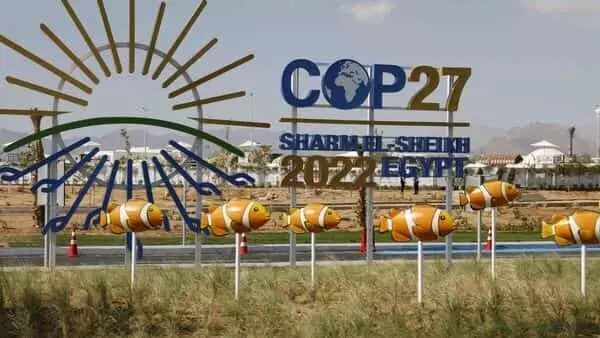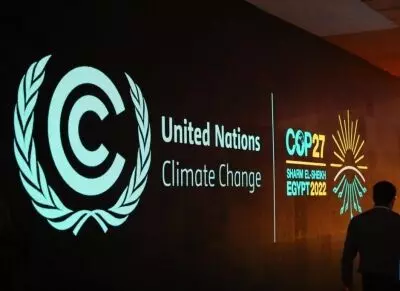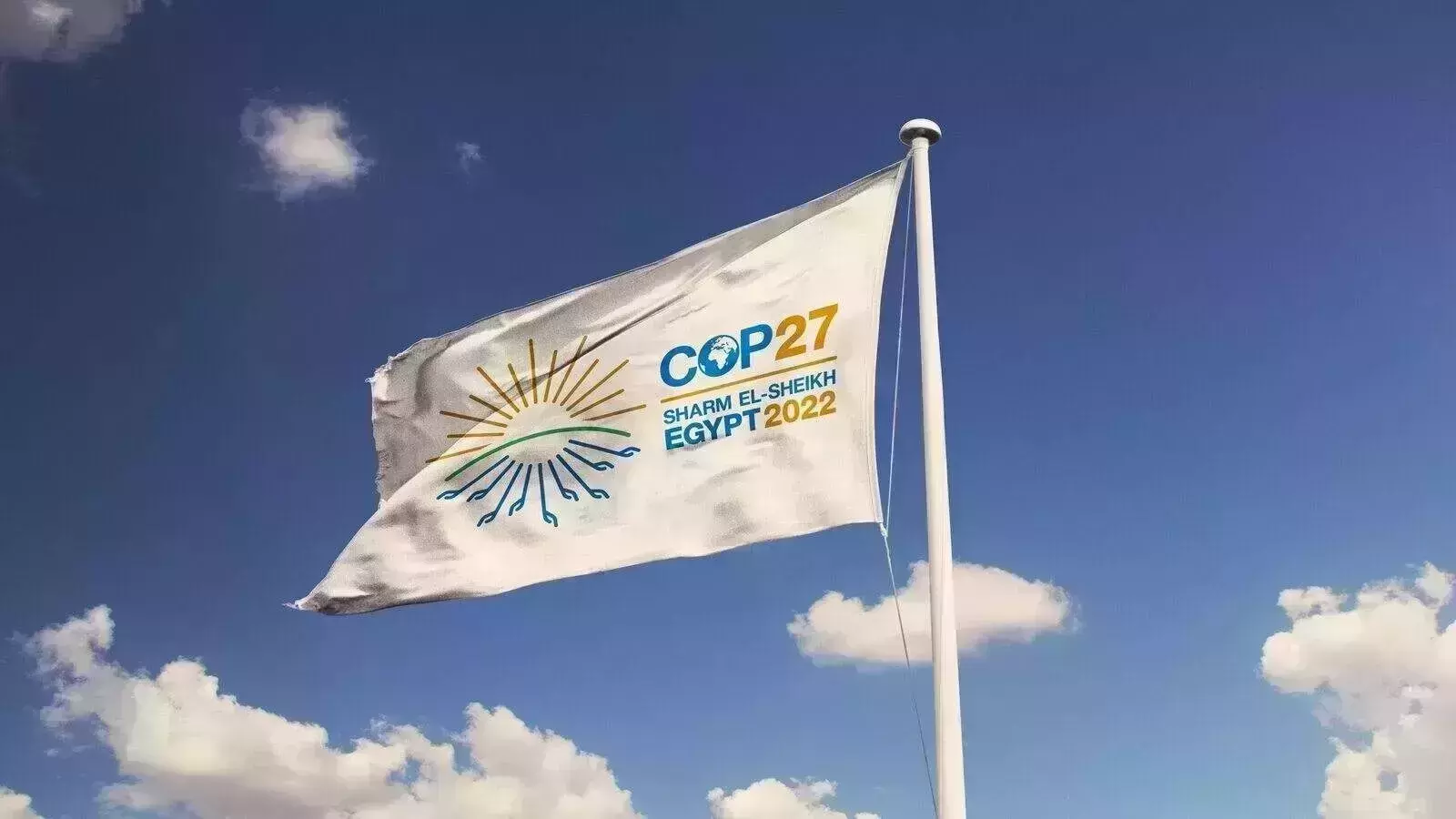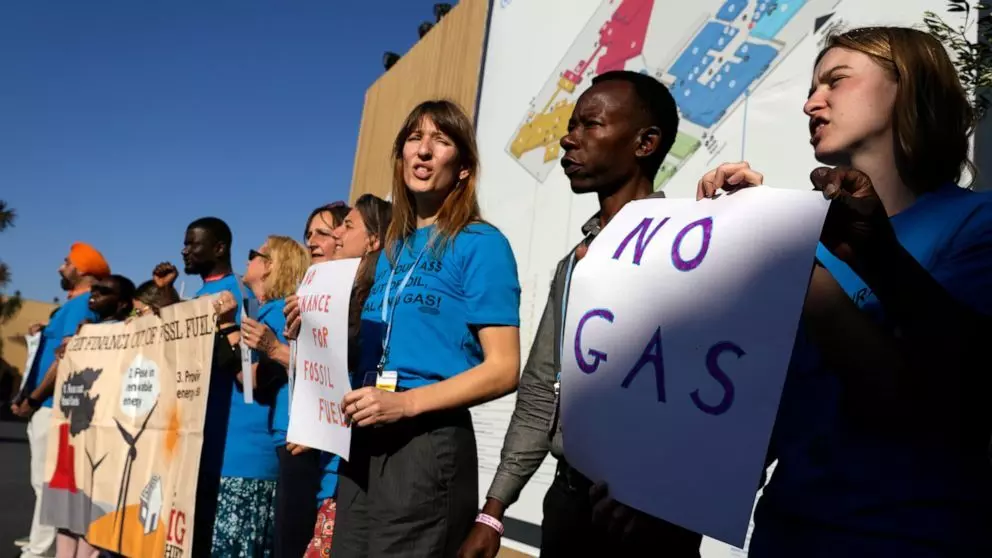
An insincere exercise at COP27
text_fieldsThe Egypt climate summit (COP 27), which was almost expected to be a total failure, left the impression that it had somehow been tottered and escaped after the last minute. The situation of having to leave Sharam-el Sheikh without reaching a decision even after the stipulated time was saved with a face-saving understanding about a fund to be formed to help the poor countries. According to the previously formulated concept of climate finance, rich countries have an obligation to help poor countries transition to clean energy and to climate disasters. It is in addition to this that now for the first time under the name of 'Loss and Damage', reparational financial assistance for damages and losses which have already affected poor countries is accepted at least in principle. Although the details of this are yet to be clarified in practical terms, it can be termed as an achievement in the sense that the developed countries have accepted their onus for the first time. But a skepticism is natural about the future of this disaster fund when one remembers that only a small fraction of the $10,000 crore agreed earlier has been handed to poor countries by the rich. It is a serious setback for COP 27 that there were not more decisions to help reduce pollution. This is despite the harsh reality that countries have not been able to reduce pollution as much as they are bound to. It is also worth remembering that even those undertaken goals are not sufficient at all. In such a situation, the question of what two hundred countries did for two weeks is relevant. Now it is a pity that we have to console ourselves by citing a vague understanding. It is a good example of how the divisions created by nation-states make the entire future of the Earth miserable, that despite decades of seriousness and possibility of fm effective prevention, the UN climate summits fail to move even on the most important issues.
The issue is also one of justice and honesty. Rich countries have reaped the benefits of industrialization by polluting the most. At the same time, it is the poorer countries who have to bear the brunt of the climate crisis caused by the toxic gases and waste emitted by them. Fossil fuel companies have pocketed billions of dollars in profits this past year alone, at the same time when the world is searching for ways to reduce fossil fuels, realizing that it is the only way the damages of climate change. The profit made by seven major oil companies in the private sector is 15,000 crore dollars in nine months of this year. And in the process what the governments do is to provide benefits in the form of subsidies to these companies. Every year various governments provide subsidies of 64 billion dollars to oil producers. Not stopping with that, it also gives these companies crucial control over summits aimed at settling the climate crisis they exacerbated and are obligated to pay for. Cop 27's sponsors include Coca-Cola Co., the world's biggest producer of plastic waste, and General Motors, leader in industries tht pollute. It is the lobbyists of such monopolies who hang around the leaders who come to the discussion. About 600 lobbyists had come to COP 26 last year in Glasgow. Now their number has reached 636 in Cop 27 in Egypt.
Criticism that climate summits are being sabotaged by profit-seeking companies and state leaders beholden to them is justified. The air travel of the leaders who attend them is a waste of air pollution. As the Covid pandemic has shown, the world's deeper crisis is the lack of dedication, commitment and leadership to deal with global crises that affect the whole world, making all borders irrelevant. There is a point in what an unofficial representative of Cop 27 pointed out:even as the fire is fast approaching, the world is arguing over the smoke it creates. Leaders have lost the determination to put out the fire and even the recognition. Beyond governments and monopolistic sponsors, the world will have to now look to volunteer groups and the younger generation.

























